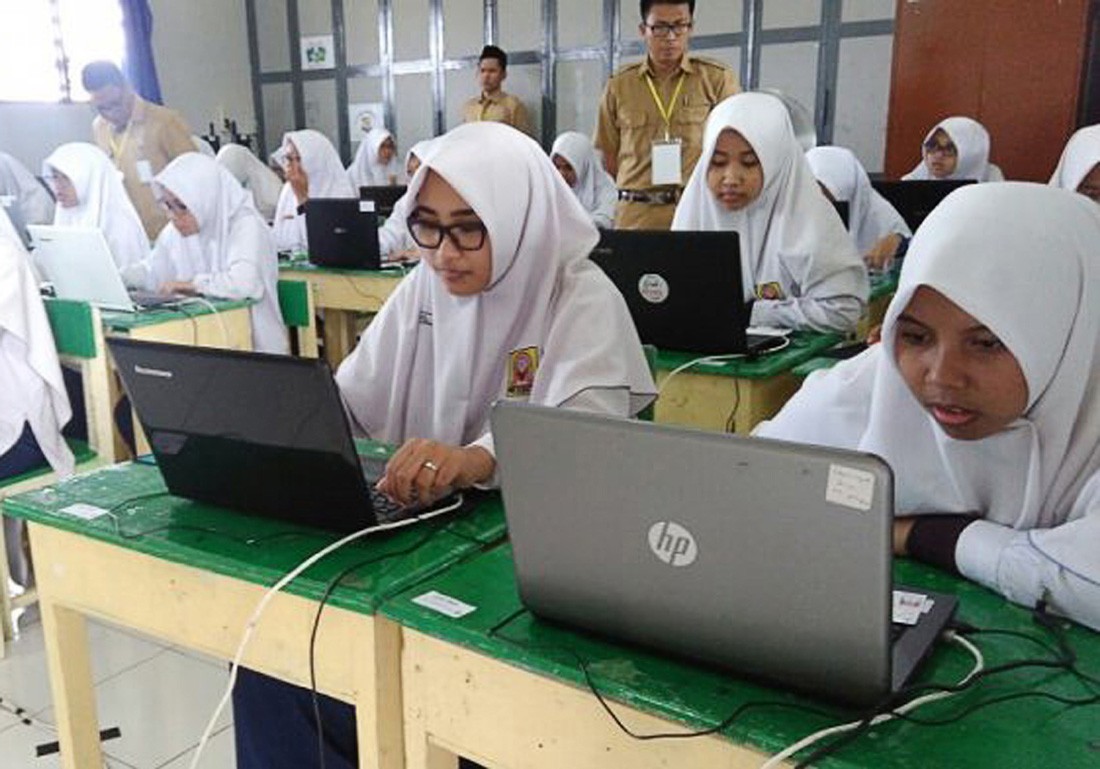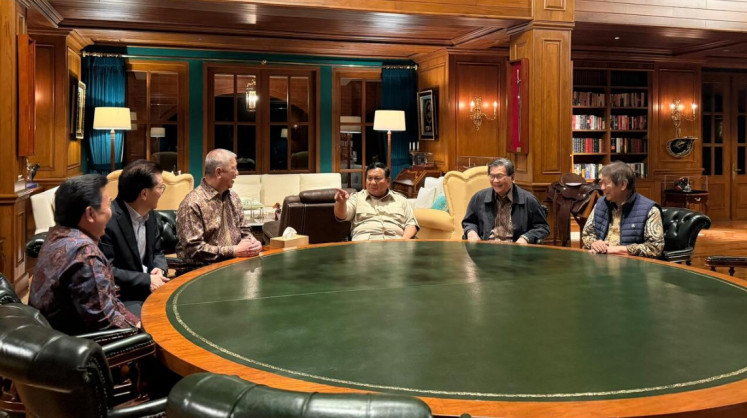Popular Reads
Top Results
Can't find what you're looking for?
View all search resultsPopular Reads
Top Results
Can't find what you're looking for?
View all search resultsOpen education can address Indonesia's educational inequalities
In Indonesia open education is in initial stages, marked by lack of supporting policy and infrastructure and narrow interpretation of OER as free online courseware and educational materials.
Change text size
Gift Premium Articles
to Anyone
S
ince 2002 Indonesia’s Constitution was amended to mandate the central and local governments to spend at least 20 percent of their budget on education. This has helped improved access to education. However gaps in school participation and quality of education between better- and less-resourced areas, as well as between different socio-economic groups remain.
Increasing privatization of education has provided students from wealthier households with more educational opportunities compared to those from low and middle-income households.
Further, offline or hybrid adaptations for digital innovation in education are needed to reduce inequality, given poorer physical infrastructure and internet connectivity outside urban centers.
On the other hand, in Indonesia, as in other developing countries, there is lingering concern over the "colonization of pedagogical practices”, where "valuable knowledge" is the one produced by "foreign" knowledge producers -- legitimate, national curriculum producers or scholars from developed nations. Such a mindset is also reflected in our awe over high ranks in international league tables such as the Program for International Student Assessment (PISA). We also place high prominence on publishing of scholarly work in international journals – which is indeed necessary, but we pay scant attention to inequities in education.
With increased attention to lack of accessibility and cost of education at home, as well as unequal knowledge production, the concept of open education (OE) offers an approach to enable a more equitable access to education and knowledge. It promotes openly licensed educational resources (open educational resources/OER) that allow free use, revision and re-purposing.
OE’s aims to ensure education belongs to the commons, leading us to reimagine what underlying values of the educational practices ought to be about; how it might disentangle from increasing pressures to merely increase and produce performance, learning outcomes, competences and other instrumental ideas; how it could support those without formal access to education and enable lifelong learning; and how it could be inclusive, accessible, and designed to incorporate diverse forms of knowledge and inquiries.
By encouraging collaborative creation and use of educational resources, OE enables students’ participation in the selection and adaptation of learning materials. Accordingly, it purports to make education available outside elite institutions and support the educational resources relevant to student’s learning needs and conditions.
Some examples would be how Wikipedia is used in some educational institutions as one of the tools to assess students’ research and writing skills as they identify the knowledge gap in existing Wikipedia pages and contribute to improving them; and how OE could connect classroom experiences to wider community experiences by encouraging more publication of, and promoting engagement with “community” knowledge (including indigenous knowledge).
Conversations around OE have advanced rapidly. Scholars, librarians, and OE advocates from the developed and developing regions regularly discuss possibilities in tackling educational challenges, while investigating forms of exclusion and inequality which might be produced or reinforced from the uncritical adoption of openness. Indeed, addressing educational inequalities requires continuous critical interrogation of educational trends and pedagogical practices.
In Indonesia OE is in initial stages, marked by lack of supporting policy and infrastructure and narrow interpretation of OER as free online courseware and educational materials.
So far the Ministerial Regulation No. 109/2013 on distance education in higher education is the only regulatory framework slightly touching on OE. Interventions by the government for adopting OE are still limited; these include the provision of e-learning resources and the creation of online publication index aggregating OER.
Thus national and institutional policies should encourage wider and better adoption of open education practices at all levels of education; make it compulsory for publicly-funded research to be published in open access formats; incentivize OER; and preempt commercial exploitation to help bridge gaps in education. Additionally, providing support for the invention of solutions for accessing OER in areas with poor internet connectivity is needed to avoid reproducing educational inequalities due to the digital divide.
The policy development on OE should invite inputs from diverse stakeholders beyond the usual educational elites.
***
The writer is a researcher and communications specialist interested in the intersections of communication, techno-politics, the construction of knowledge, and development. She participated in the 2018 OpenCon, a conference on open access, open education, and open data.










